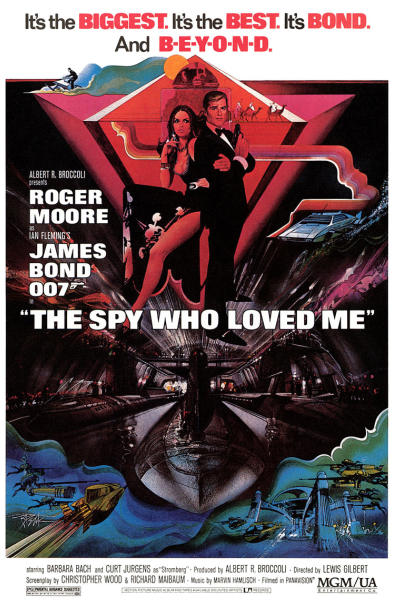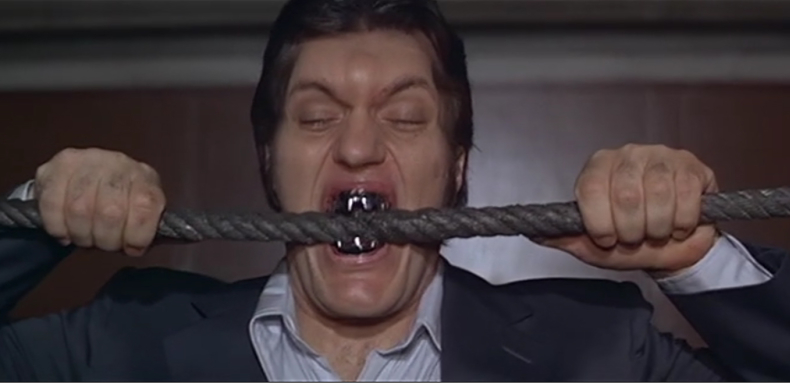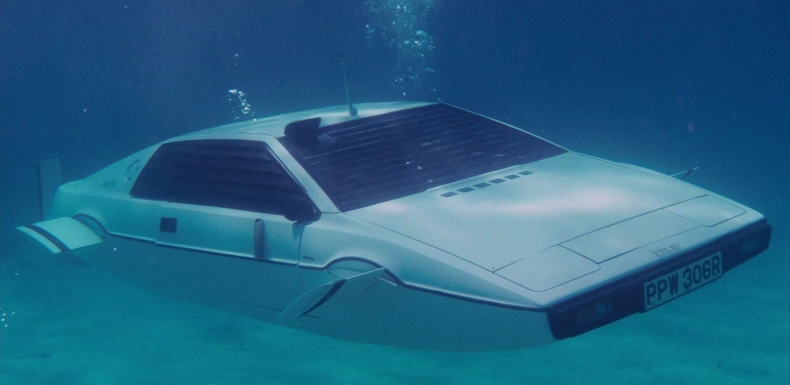The Spy Who Loved Me at 40 | Quintessential Bond in the Post-Connery Era
“Stop talking about American things and let’s watch The Greatest Movie Ever Made,” – said Alan Partridge of The Spy Who Loved Me to a caravan full of bewildered colleagues, whom he would then berate for their lack of knowledge of the Bond films overall.

The Spy Who Loved Me is perhaps not entirely worthy of Alan’s endorsement – when all is said and done, it is a simple adventure story – but what a cracking one it is, even some 40 years later. If the Bond series is a constant tug-of-war between down-to-Earth, character-driven espionage stories (On Her Majesty’s Secret Service, The Living Daylights, Casino Royale) and bonkers, larger-than-life fun (Thunderball, Moonraker, Die Another Day), then The Spy Who Loved Me is the one holding the rope on the latter side. For all the Bond movies that use ‘the Bond Formula’, this is the clear winner.
When the film went into production, producer Albert R. ‘Cubby’ Broccoli had something to prove – following the comprehensive departure of Sean Connery (“I’ve only wanted two things in this life – my own golf course and my own bank! I already own one and I’m well on my way to owning the other!“), the series began in earnest with Live and Let Die followed closely by The Man with the Golden Gun and neither of these entries made much of an impression critically or financially. Coupled with the souring of his relationship with co-producer Harry Saltzman, Broccoli needed a hit to prove the naysayers wrong – Bond could be big again.
Broccoli made the decision to use one of Ian Fleming’s original books only for the title of the film (an all-too-common trend across the film series) and create and entirely original story. Well, not exactly. Analysing what worked in many of the previous outings, he enlisted the help of writers Richard Maibaum (already a veteran screenwriter on the Bond films) and Christopher Wood (best known at that point for a serious of erotic novels if you don’t mind) to craft a story that combined the best of the previous Bonds. For better or worse, this led to a film that bore more than a passing resemblance to You Only Live Twice (both films contain a giant super-vessel that is able to consume nuclear vessels; You Only Live Twice had a spacecraft, The Spy Who Loved Me had a sea-vessel). Indeed, some would argue that You Only Live Twice is the better film – however they’d be wrong. While ‘Twice‘ has beautiful cinematography and music, it has a dull story, dated depictions of Asian stereotypes and a leading man who can’t wait for the lunch bell to ring. The Spy Who Loved Me has wit, it has charm, it has globetrotting (where ‘Twice’ had one lone flight to Japan), it has underwater action, it has Roger Moore falling off the edge of a cliff and pulling out a ripcord that releases a parachute with the Union Jack on it.
Indeed, Moore is one of the key strengths of the film. Every Bond actor has an outing that is unmistakably ‘theirs’ and The Spy Who Loved Me belongs to Roger Moore. Unlike The Man with the Golden Gun, it knows how to play his comedic sensibilities just right (“All those feathers and he still can’t fly!“). Unlike For Your Eyes Only, it knows when to play things straight, without making Bond into a dullard (there’s a wonderful scene where Bond makes no apologies for killing Anya’s KGB lover). It’s arguably the only Moore film where he really looks like a man of action (in the previous two he’s too dainty and clean-cut, the later films he’s too noticeably old). Moore’s Bond was and is the ultimate antidote to self-seriousness. He’s suave, he’s cool, he can do anything and he doesn’t give a shit. There’s a great quote he gives in a promo interview for The Spy Who Loved Me where he says that if you’re trying to send a message of some kind, you can send it by post or by telegraph.

The rest of the cast are almost perfect – Barbara Bach is no Diana Rigg, but she’s more than serviceable in a role that is a cut above the majority of the damsels of the Moore era playing a rival spy (‘Agent XXX’ before Vin Diesel ever heard of a scrambler). Curt Jurgens is a wonderful Blofeld stand-in (the original story outline called for Ernst and the SPECTRE boyos, but legal nonsense put an end to that) and the unforgettable Richard Kiel plays the mute henchman Jaws, a character so iconic most younger fans probably assume he was in one of the Pierce Brosnan films (Jaws was a commonly used character in many of the Bond games of the 90s and 00s).
It’s a difficult film to analyse because it holds up so well – aside from a few spotty moments of weakness (some of the sequences in Egypt don’t entirely make sense and aren’t as exciting as the rest of the film) it’s basically as good and as watchable as any modern blockbuster. The money Cubby Broccoli pumped into it to ensure it would be a hit is evident across the entire film – the climactic set of the ‘Liparus’ is almost Star Wars-levels of epic, the incredible Lotus Esprit chase (followed by its transformation into a submarine) is one of the gadget highlights of the series, Carly Simon’s title song is one of the series’ best and the film has some of Bond’s best puns, including Bond’s sign-off about keeping the British end up.

Throughout my youth, self-professed experts of cinema, of culture, of James Bond, would insist that there was ‘no’ Bond after Connery, that the series somehow ceased to exist without him and that the efforts of all the other actors were somehow apocryphal. To those people, I present The Spy Who Loved Me – the film that reenergised Agent 007, formerly a withering relic of the 1960s, now an enduring icon of cinema. It’s a film that still stands up as one of the best ways to make a Bond movie. It’s one of only a handful of films to date that proves that nobody does it better.

